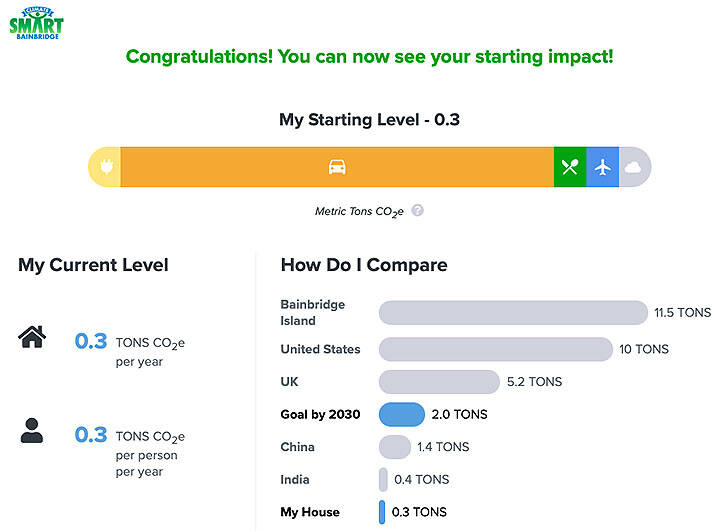Editor’s note: Bainbridge Island City Councilmembers talk a lot about climate change, but do they practice what they preach? You can decide as you read stories about six of them over the next month. This is the second in the series.
Bainbridge Island City Councilman Clarence Moriwaki decided early on he wanted to take care of the earth.
“Tread lightly and leave your campsite as if you were never there” was a mantra that I learned earning my Boy Scout camping merit badge. That was the start of my lifelong environmental values, he says in an email answering climate change questions from the Review.
Years later, on the first anniversary of Earth Day in 1971, Moriwaki was student body president at a junior high in Moses Lake. They held an observance of Earth Day with an assembly, and he has continued to observe ever since. On BI, for example, he has participated in the Weed Warrior commemorations.
In 1980, for his New Year’s resolution, Moriwaki decided to quit eating mammals. That decision was based on studies showing cattle production and consumption contributed to pollution and impacted environmental quality. His resolution in 1990 was to stop eating birds and in 2000 to stop eating seafood.
As a result, he is a vegetarian. However, he did explain why he sometimes consumes eggs and dairy. The animal did not die producing the foods, eggs are potential chickens and pizza and coffee ice cream are two of the major food groups.
“I’m not sure of my total carbon reduction footprint from decades of non-animal consumption, but combined with driving an electric car, conserving energy and water, being an avid cyclist, and walking for most services and entertainment while living in Winslow, my carbon footprint is minimal,” he says.
Participating in Climate Smart Bainbridge, Moriwaki has found out that his annual personal carbon footprint is .3 tons of CO2, which is a fraction of the national average of 10 tons and the BI average household average of 11.5 tons, he says.
The councilmember encourages everyone to go to www.climatesmartbainbridge.org “to see what your carbon footprint is and what steps you can take to help improve our environment,” he says.
Moriwaki’s carbon footprint on the road is almost nil thanks to his 2019 Chevy Volt. He said it’s been over a year since he filled his eight-gallon gas tank, and 98% of his trips are all-electric, with only four gallons of gas used over 4,000 miles.
Ironically, Moriwaki said 80% of his carbon footprint comes from using his electric vehicle since Puget Sound Energy still uses fossil fuel plants for power generation.
He put a plug in to encourage PSE to reduce that amount. If PSE “divested those polluting plants and became all hydroelectric and renewable, our entire island’s carbon footprint would fall far below the national average.”



